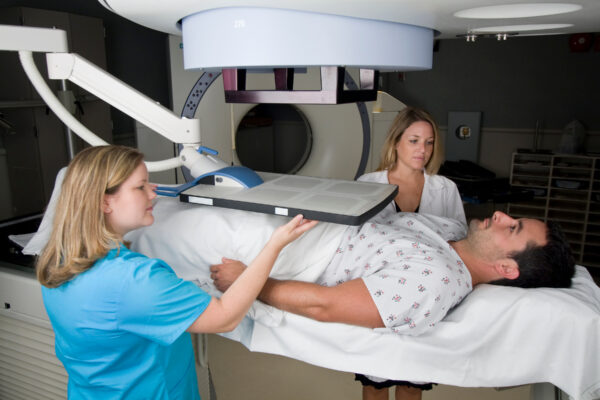|
In this issue:
|
|
|
|
|
COVID hits prostate cancer diagnosis harder than other cancers
New evidence from Ireland shows significant fall
|
|
|
|
|
Prostate cancer treatment brings a financial burden
New study shows that radiotherapy costs men more than other treatments
|
|
|
Prostate Research and Treatments
Is it time to say goodbye to the DRE for PCa screening?
From the patient standpoint the digital rectal examination (DRE) is seldom a welcome part of the diagnostic procedure or the routine post-treatment follow-ups. For most urologists the DRE remains part of diagnostic screening and assessment. The question may be the information the urologists gain from the exercise? It has to be borne in mind that for many years DREs were the best and only means to screen for and detect PCa. It was jokingly referred to as the urologist’s handshake.
The authors of the reported article, Drs. Dubin and Puneen are both urologists and are not saying that the DRE has become completely obsolete. It still has value in certain areas, such as assessing amenability for surgery in patients with known high-risk cancer or those who may require a post radiation prostatectomy. For PCa screening, however, they think it provides limited helpful information and potentially some risks. “As the technology in our field continues to evolve, the DRE will continue to become more outdated. More and more literature supports the use of the prostate MRI for screening, and it has become the “go-to test” prior to a biopsy. Compared to the illuminating information we get from an MRI, the DRE is merely a finger in the dark”.
See report at Time to Say Goodbye to the DRE for Prostate Cancer Screening | Renal and Urology News
|
|
|
The most effective systemic treatments for metastatic castration-sensitive PCa?
This network meta-analysis of 7 randomized clinical trials including 7287 patients noted that, combined with androgen-deprivation therapy, treatments associated with significantly improved overall survival included abiraterone acetate, apalutamide, and docetaxel; treatments associated with significantly improved radiographic progression-free survival included enzalutamide, abiraterone acetate, apalutamide, and docetaxel, ordered from the agent with the greatest to least effectiveness according to the results of clinical trials. Docetaxel was associated with substantially increased serious adverse events, abiraterone with slightly increased serious adverse events, and other treatments with no increase in serious adverse events.
In this network meta-analysis, as add-on treatments to ADT, abiraterone acetate and apalutamide may provide the largest overall survival benefits with relatively low SAE risks. Although enzalutamide may improve radiographic progression-free survival to the greatest extent, longer follow-up is needed to examine the overall survival benefits associated with enzalutamide.
Read more: Comparison of Systemic Treatments for Metastatic Castration-Sensitive Prostate Cancer: A Systematic Review and Network Meta-analysis | JAMA Oncology | JAMA Network
|
|
|
Does coffee consumption reduce the risk of prostate cancer?
Prostate cancer patients are often bemused by the claims that various foods and drinks will protect against prostate cancer. Of course, by the time many of us read such claims we have been diagnosed with the disease. However, this Chinese study does make for interesting reading. It is a meta-analysis which means that it is a review of published articles.
This study suggests that a higher intake of coffee may be associated with a lower risk of prostate cancer.
Read more: Coffee consumption and risk of prostate cancer: a systematic review and meta-analysis | BMJ Open
|
|
|
Europa Uomo News
Next Board meeting
The Board holds its first meeting of the year on 26 January by Zoom.
|
|
|
Active Surveillance Patients Webinar
Our colleague, Cosimo Pieri, informs us that the Active Surveillance Patients International group with which he is involved is holding is first international webinar on Saturday 30th January at 18.00 CET.
The event features a panel discussion representing patients from 5 countries (Including Cosimo). Each will speak briefly and then attendees may ask questions. There has been so much helpful information from webinars featuring doctors, but this webinar will allow you to learn from patients who have been through the process.
To participate you need to register here.
|
|
|
Items of Interest
Telemedicine for patients - short video presentation
During the current Covid-19 pandemic cancer patients in many European countries have been avoiding in-person consultations with their physician in clinical settings. This video presentation seeks to promote the idea of a Virtual Consultation in place of an in-person meeting. This approach has gained more widespread usage during the pandemic and while it does not eliminate the need for in-person sessions it can go a long way to reduce them. A virtual consultation allows the patient and physician to present and assess matters in a more comfortable setting. The presentation suggests that the use of this approach may become a more routine part of clinical practice.
Telemedicine video – Patient Information (uroweb.org)
|
|
|
Guidelines for prostate cancer treatment
The various representative bodies involved with the treatment of prostate cancer devote enormous resources to the review of the guidelines for treatment. The PCa Guidelines Panel consists of an international multidisciplinary group of urologists, radiation oncologists, medical oncologists, radiologists, a pathologist and a patient representative.
The full guidelines are available on the EAU website but many prostate cancer patients will be well satisfied with the information provided in the Summary
|
|
|
|
|
|
FREE SUBSCRIPTION TO EUROPA UOMO MONTHLY UPDATE
All previous issues are available on website: www.europa-uomo.org/newsletters/
|
|








